In the last couple of years, bakuchiol has come to the cosmetic scene to take over the place of the gold standard in anti-aging treatment: retinol. You can find bakuchiol nowadays in several skincare products claiming to be the ultimate “Retinol Alternative” to improve the appearance of wrinkles and fine lines, hyperpigmentation, and even acne lesions just as retinol would do. But is it worth the hype? In this article, we will explore the research supporting the activity of bakuchiol compared to retinol, its benefits and advantages, and its cosmetic use.
Let’s introduce retinol first!
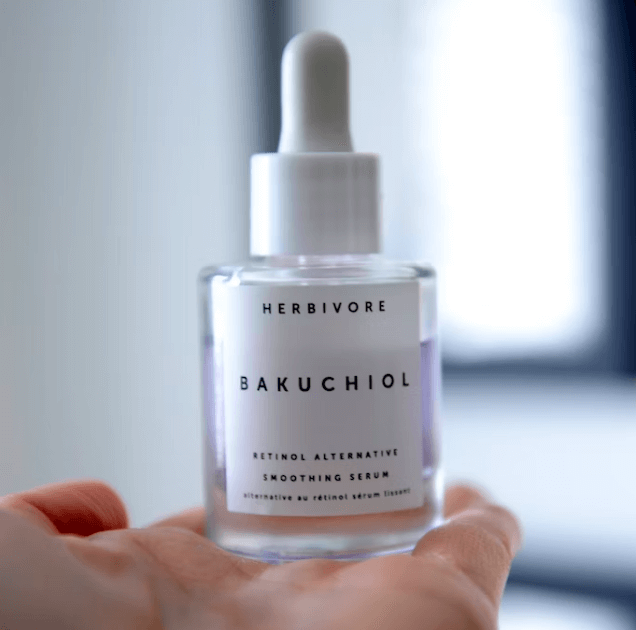
Retinol belongs to the family of retinoids, the famous vitamin A derivatives that have been widely studied and used for decades to treat (most of them under prescription!) skin concerns such as the visible signs of aging, hyperpigmentation, and acne. Although their important scientifically proven efficacy, retinoids are associated with several adverse effects (concentration-dependent) [1], such as skin dryness, irritation, peeling, stinging, burning, and sensitivity [2].
Retinol is the most popular retinoid cleared for its use in cosmetics
since it causes fewer adverse effects compared to other retinoids [1]. However, the potential irritation of retinol is still a reality, being difficult to tolerate and limiting its use, mostly for those with sensitive skin. This is where Bakuchiol comes in handy since it claims to deliver retinol-like effects in the skin but without retinol-like adverse side effects.
So, what is bakuchiol?
Bakuchiol is a natural compound extracted from the seeds of
Psoralea corylifolia
(also known as “babchi”), a plant traditionally used in Indian and Chinese medicine. Its proven anti-aging, anti-pigmentation, anti-acne, antioxidant, anti-inflammatory and antimicrobial activities have converted bakuchiol into a desirable active ingredient to include in skincare products [3].
Why is bakuchiol compared to retinol? Let’s talk science.
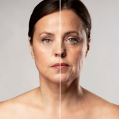
Recent studies have suggested that bakuchiol can modulate retinol-like functions when applied to the skin, which compares with the improvement of all skin concerns that retinol treats exceptionally (signs of aging, photodamage, hyperpigmentation, and acne).
For instance, research has shown that topically applied bakuchiol (0.5 % cream twice daily for 12 weeks) and retinol (0.5 % cream at night for 12 weeks) were able to significantly decrease wrinkles and hyperpigmentation in the same way with no statistical difference between both compounds. Bakuchiol was said to be comparable to retinol in improving the signs of photoaging, by reducing the appearance of wrinkles and fine lines, and evening the skin tone [2].
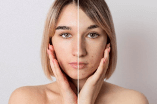
Another clinical study also proved the efficacy of bakuchiol in treating mild to moderate acne lesions. Topically applied bakuchiol (0.5% cream twice daily for 12 weeks) was demonstrated to significantly reduce the number of inflammatory lesions and improved existing acne-related hyperpigmentation [4], which are concerns that topical retinol can normally treat [5].
Based on such clinical evidence, bakuchiol has been considered a functional analog of topical retinol even though their chemical structures are quite different. So,
why can they deliver similar skin-beneficial effects?
From a cellular point of view, it’s been suggested that bakuchiol and retinol may regulate similarly the expression of genes associated with the production of several types of collagen and extracellular matrix components in the skin, leading to the proven retinol-like effects (improvement of wrinkles and fine lines and skin’s pigmentation, elasticity, and firmness) [6].
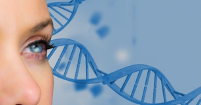
Bakuchiol and retinol have also been shown to be equally able to decrease proinflammatory molecules, which can also be involved in the skin photoaging process [1].
But there is more. Bakuchiol has also been demonstrated to be a potent antioxidant, in contrast to retinol [1]. It’s been suggested that bakuchiol influences several antioxidant processes to fight oxidative stress and lipid peroxidation [2], which further contributes to its anti-aging, photoprotective, and brightening effects.
Benefits of bakuchiol: advantages over retinol
To this point we have seen that bakuchiol can deliver significant and comparable retinol-like effects on the skin, but why is it replacing retinol as its natural alternative? Here are the advantages of bakuchiol over retinol that explain this switch:
-
Fewer side effects:
Bakuchiol can be better tolerated and induces fewer adverse side effects compared to retinol. In one study, patients receiving bakuchiol had significantly fewer stinging and scaling effects than those receiving retinol [2].
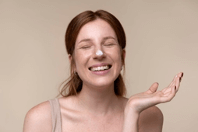
-
Suitable for sensitive skin:
Along with its better tolerability, the use of bakuchiol on sensitive skin is a main advantage of this ingredient over retinol. The use of topical retinol can be challenging for those with sensitive skin due to the higher irritation potential [7]. In contrast, one study proved that topical application of bakuchiol on sensitive skin can be well tolerated and still effective [7]. -
Stable to sun exposure:
Bakuchiol has been proven to be well tolerated during daytime use without any risk of causing photosensitivity on the skin [2], in contrast to retinol which can only be applied at night due to its high risk of causing a photoreaction upon sun exposure.
Cosmetic uses of bakuchiol
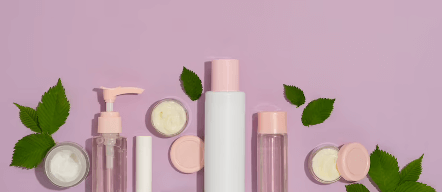
The staggering popularity of bakuchiol in recent years has placed this plant-based ingredient as the definitive “retinol alternative” in skincare products, being included in formulations ranging from serums to lotions and creams, cleansers, and even sunscreens. Due to its retinol-like effects already discussed, you may find it on its own (or even together with retinol) in several types of products such as:
-
Antiaging products:
You will find bakuchiol mainly as the antiaging active ingredient in formulations claimed to target wrinkles and fine lines, recovering skin’s elasticity, firmness, and youthful look. -
Brightening products:
Bakuchiol can help in fighting discoloration concerns in the skin (dark spots, uneven skin tone, post-acne marks, hyperpigmentation, and sun-damaged skin). -
Eye products:
Bakuchiol can also be present in products intended to improve dark circles, fine lines, and wrinkles around the eye area.
Finally, some general considerations of its use
1.
Even though bakuchiol can be used during the day,
it’s advised to always apply sunscreen
to protect your skin from the detrimental effects of UV radiation and to get better results from your skin care treatment.
2.
Always do a patch test
before incorporating new products with bakuchiol into your skincare routine to ensure your skin can tolerate it without any allergic reaction or sensitivity.
3.
Do you need to avoid retinol or immediately switch to bakuchiol?
Not necessarily. If your skin tolerates retinol well and it works for you, you can keep using products that contain it. If your skin is sensitive or you are a beginner to skincare, you may want to use products that contain bakuchiol to obtain those flawless retinol-like effects without compromising your skin.
4.
As mentioned, you can find products that contain bakuchiol and retinol combined, to make the formulation with retinol more bearable. If you prefer, you can even start with bakuchiol and later make the progressive switch to retinol-containing products at low doses, always testing for sensitivity first.
THE TAKEAWAY
The truth is that retinol is the gold standard in cosmetic antiaging treatment for a reason. It’s a compound that has been extensively studied for decades, meaning that the evidence supporting its efficacy is strong (aka it works!). However, although bakuchiol is relatively new in the cosmetic scene and the scientific evidence supporting its efficacy and safety is not as solid as that of retinol, it’s a promising ingredient and an excellent choice for those with sensitive skin that can’t tolerate retinol. All in all, bakuchiol is a great natural retinol alternative that you need to add to your skincare routine if you want to enjoy all the retinol-like benefits without the retinol-like undesired side effects.
REFERENCES
- Bluemke, A., Ring, A. P., Immeyer, J., Hoff, A., Eisenberg, T., Gerwat, W., Meyer, F., Breitkreutz, S., Klinger, L. M., Brandner, J. M., Sandig, G., Seifert, M., Segger, D., Rippke, F., & Schweiger, D. (2022). Multidirectional activity of bakuchiol against cellular mechanisms of facial aging – Experimental evidence for a holistic treatment approach. International Journal of Cosmetic Science. https://doi.org/10.1111/ics.12784
- Dhaliwal, S., Rybak, I., Ellis, S. R., Notay, M., Trivedi, M., Burney, W., Vaughn, A. R., Nguyen, M., Reiter, P., Saric, S., Yan, H., Foolad, N., & Sivamani, R. K. (2019). Prospective, randomized, double‐blind assessment of topical bakuchiol and retinol for facial photoageing. British Journal of Dermatology, 180 (2), 289–296. https://doi.org/10.1111/bjd.16918
- Krishna, T. P. A., Edachery, B., & Athalathil, S. (2022). Bakuchiol – a natural meroterpenoid: structure, isolation, synthesis and functionalization approaches. RSC Advances, 12 (14), 8815–8832. https://doi.org/10.1039/d1ra08771a
- JDDonline – Journal of Drugs in Dermatology. (2021). A Clinical Study Evaluating the Efficacy of Topical Bakuchiol (UP256) Cream on Facial Acne. JDDonline – Journal of Drugs in Dermatology. https://jddonline.com/articles/a-clinical-study-evaluating-the-efficacy-of-topical-bakuchiol-up256-cream-on-facial-acne-S1545961621P0307X/
- Kolli, S. S., Pecone, D., Pona, A., Cline, A., & Feldman, S. R. (2019). Topical Retinoids in Acne Vulgaris: A Systematic Review. American Journal of Clinical Dermatology, 20 (3), 345–365. https://doi.org/10.1007/s40257-019-00423-z
- Chaudhuri, R. K., & Bojanowski, K. (2014). Bakuchiol: a retinol-like functional compound revealed by gene expression profiling and clinically proven to have anti-aging effects. International Journal of Cosmetic Science, 36 (3), 221–230. https://doi.org/10.1111/ics.12117
- Draelos, Z. D., Gunt, H., Zeichner, J. A., & Levy, S. B. (2020). Clinical Evaluation of a Nature-Based Bakuchiol Anti-Aging Moisturizer for Sensitive Skin. Journal of Drugs in Dermatology, 19 (12), 1181–1183. https://doi.org/10.36849/jdd.2020.5522

 By myulikeadmin
By myulikeadmin



